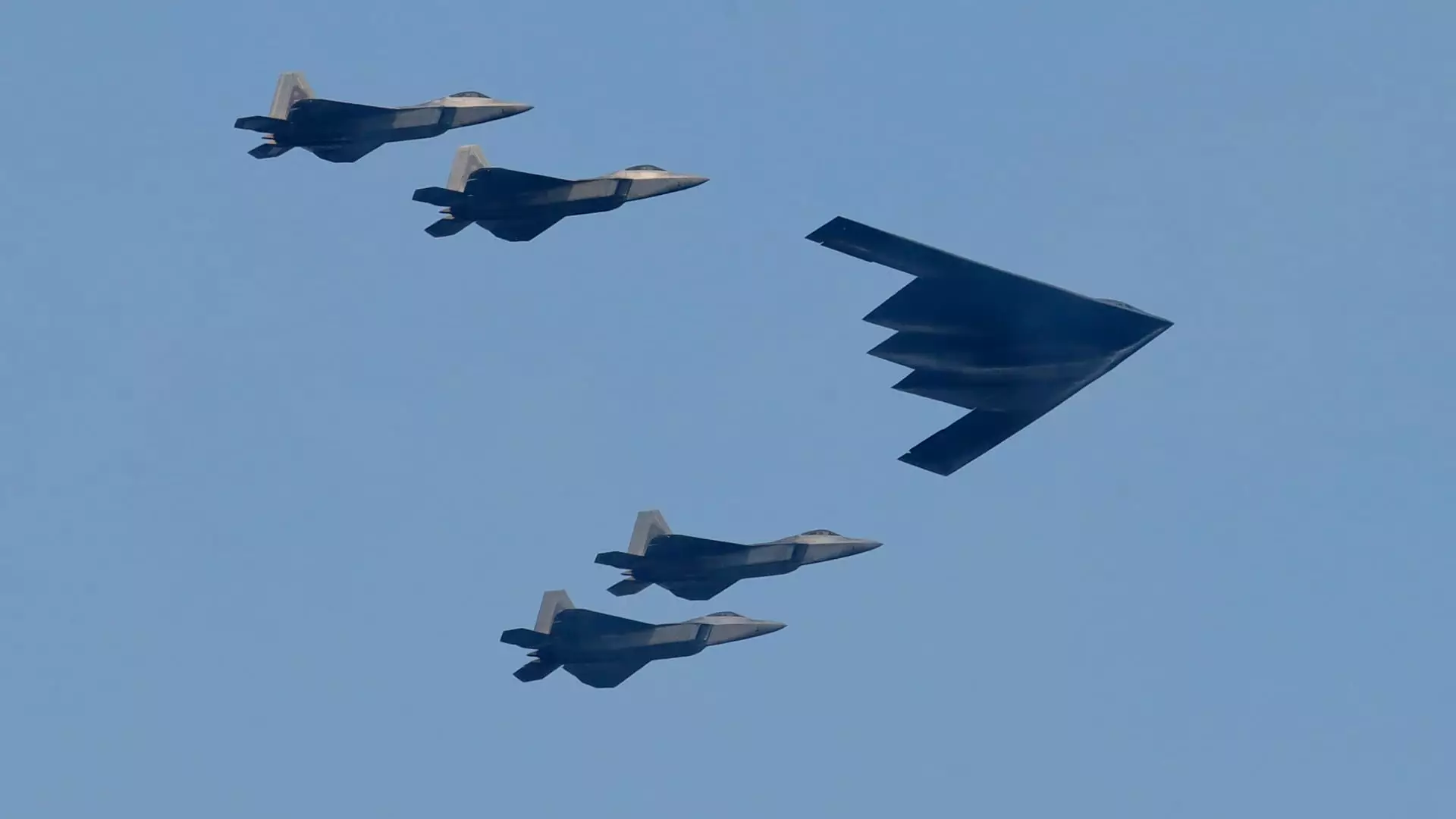On a seemingly ordinary Saturday, a seismic shift reverberated through international relations as President Donald Trump jubilantly proclaimed the United States’ military action against Iran. Having attacked three nuclear sites, including the contentious Fordo facility, Trump hailed the operation as a “very successful attack,” tweeting that it marked a historic moment for both the U.S. and its allies. However, what this misguided proclamation signals is not a victory, but rather a catastrophic miscalculation that threatens to destabilize an already volatile Middle East and spiral into a global catastrophe.
The jubilation among Trump’s supporters and allies, such as Israeli Prime Minister Benjamin Netanyahu, illustrates a troubling trend: the glorification of military strength as the primary avenue for diplomacy. Netanyahu’s assertion that “peace through strength” is a legitimate political strategy exemplifies a dangerous ideology that prioritizes aggression over dialogue. This approach neglects the complexities of international relationships, reducing them to a boisterous display of military might instead of thoughtful and strategic negotiation.
The Reactions Speak Volumes
The breadth of responses from world leaders provides a chilling narrative of the potential ramifications of the attacks. United Nations Secretary-General Antonio Guterres, a voice of reason amid the chaos, expressed grave concern over the inevitable escalation of violence and the precarious nature of the current geopolitical landscape. His warning that this conflict could spiral “out of control” encapsulates the reality that military actions often lead to unintended consequences—a truth that history continuously reinforces.
Guterres rightly emphasizes that there is “no military solution” to this crisis. His appeal for diplomacy underscores a philosophy that is often drowned out by the war drums of aggressor nations. A critical examination of the situation reveals a higher risk: that the U.S. finds itself embroiled in a quagmire from which escape is challenging. The protestations from countries like Venezuela and Cuba, condemning the U.S. strikes and calling for immediate cessation of hostilities, highlight a widespread recognition that the attack sets a dangerous precedent. It suggests that military aggression may be an acceptable recourse against perceived threats—a notion that undermines international law and the very principles the United Nations was founded upon.
The Call for Diplomacy
The urgency for diplomatic dialogue, echoed by Mexico’s Ministry of Foreign Affairs, reflects a desperate plea for sanity amid an impulsive response to perceived threats. In a world where a single action can have profound and long-reaching ramifications, prioritizing discussions over escalatory tactics should be the cornerstone of any legitimate foreign policy approach. The Mexican government’s insistence on de-escalation embodies a mature understanding of world politics, contrasting starkly with the prevailing narratives of militarization.
South Korea’s decision to convene an emergency meeting signifies not just panic but the realization that the ripple effects of U.S. military actions can destabilize entire regions. The East Asian nation’s proactive response is a testament to the cascading effects of Trump’s unilateral decisions, which push allies into precarious positions as they inadequately respond to an unpredictable global landscape shaped by aggression.
The Legacy of Trump’s Decisions
It is imperative to analyze the long-term implications of such military aggressions. Each bomb dropped is not merely a tactical decision; it is a seed planted for future conflicts and animosities. The fragile peace paradigms built through years of negotiation can be obliterated in moments—a harsh truth that weighs heavily on the shoulders of those steering the ship of state.
In a time when unity and collaboration should be paramount, Trump’s administration’s tendency to favor unilateral military actions undermines collective security and paves the way for perpetual conflict. The reactions of world leaders underscore a universal disdain for the path of militarism that the U.S. is currently treading; such an approach runs the risk of unraveling the very fabric of international cooperation that has been painstakingly woven through decades of diplomacy.
What remains abundantly clear is that the current trajectory, driven by the myopic views of leaders who condone aggression without accountability, holds the potential for irreversible damage—not just to the immediate region but to the global order altogether. The world demands leaders who prioritize diplomacy over destruction, as the alternative could plunge humanity into a crisis that few could escape.


Leave a Reply